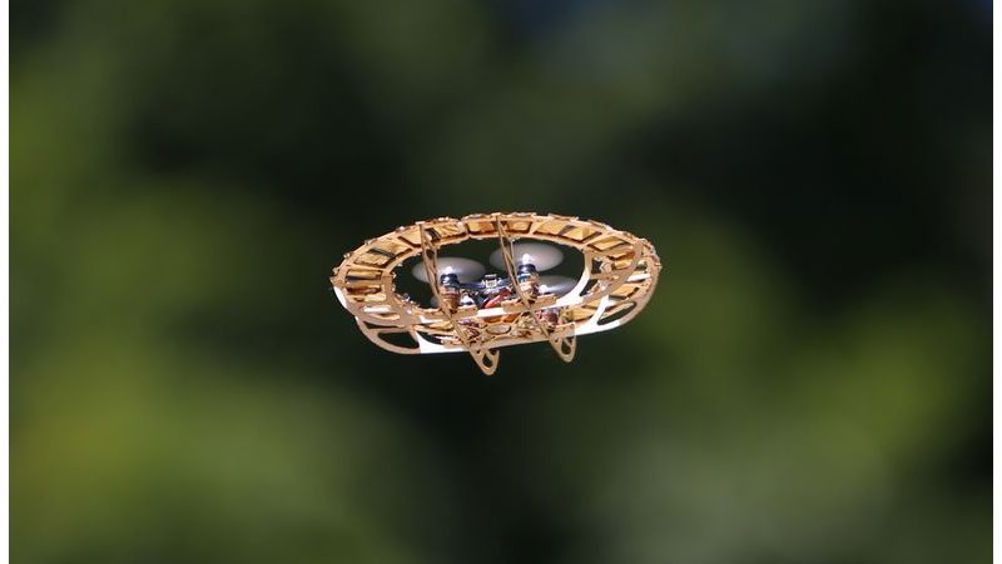Ultra-thin solar cells for self-sufficient drones and sustainable aviation
Researchers at the Johannes Kepler University Linz (JKU) in Austria have created ultra-thin and lightweight solar cells to give energy autonomy to drones.

According to the JKU researchers, whether on Earth or in space, autonomous energy is critical in keeping power systems running independently for extended periods of time, particularly in remote or unpredictable environments.
Conventional energy solutions - including fossil fuels, batteries and other alternative energy generation methods have their challenges, the researchers said. They are often too large, require cables or stationary charging, negatively impact on the environment, or their power density is too low.
As a solution, the research team developed ultra-thin and flexible perovskite solar cells.
The researchers said that their quasi-2D perovskite solar cells have a power output of up to 44 watts per gram and a comparatively high level of stability, making them an efficient and lightweight solution to facilitate self-sufficient energy generation over extended periods of time.
In a statement, PhD student at JKU and a lead author in the study, Christoph Putz, said: “Ultra-thin and lightweight solar cells not only have enormous potential to revolutionise the way energy is generated in the aerospace industry, there are also a wide range of applications that include wearable electronics, and the Internet of Things, that can also benefit from this new technology.
Register now to continue reading
Thanks for visiting The Engineer. You’ve now reached your monthly limit of news stories. Register for free to unlock unlimited access to all of our news coverage, as well as premium content including opinion, in-depth features and special reports.
Benefits of registering
-
In-depth insights and coverage of key emerging trends
-
Unrestricted access to special reports throughout the year
-
Daily technology news delivered straight to your inbox










Water Sector Talent Exodus Could Cripple The Sector
Well let´s do a little experiment. My last (10.4.25) half-yearly water/waste water bill from Severn Trent was £98.29. How much does not-for-profit Dŵr...